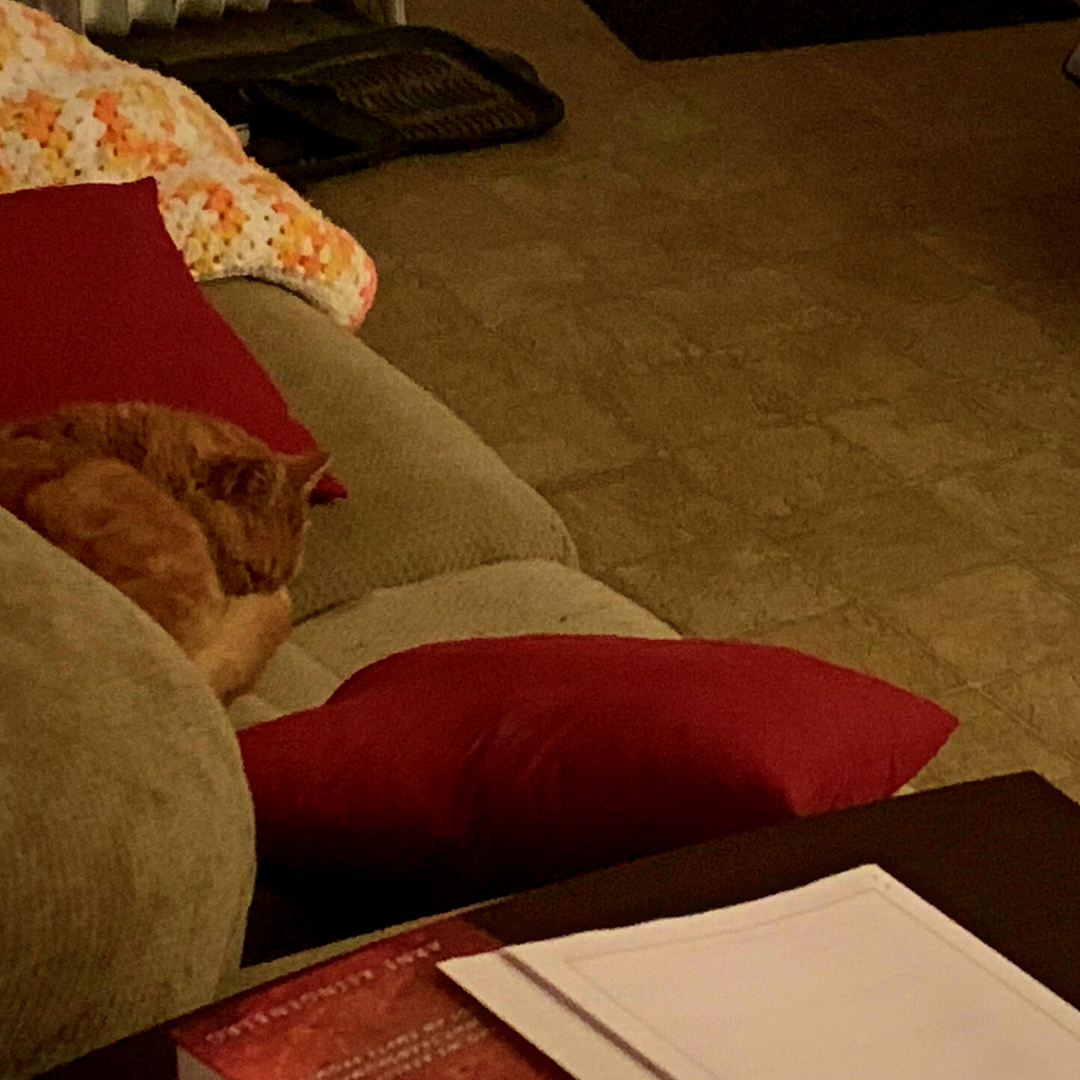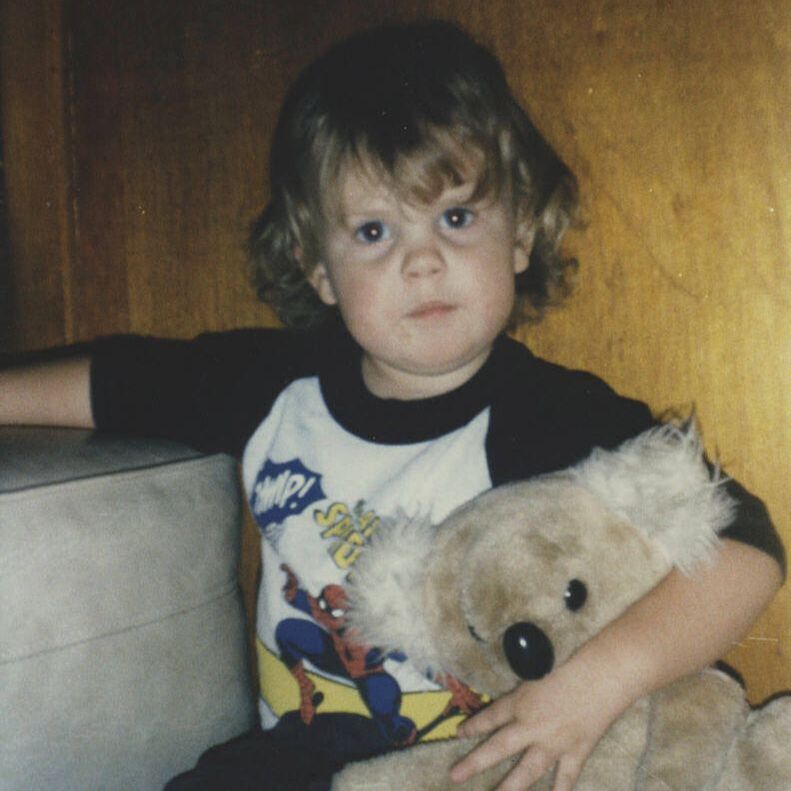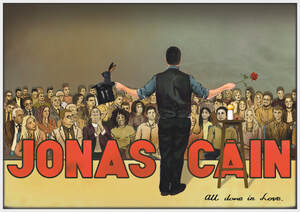|
He scooted into the kitchen as soon as the door opened. This was quite a surprise; up until now, every other time he had come for a visit, he'd wait to step inside until I backed away from the door. This was the first time Mr. Scoots, a beautifully-orange stray cat, allowed me to come between him and the door.
The seasons were changing, and the cool Autumn air would soon turn into a frigid New England winter. I had hoped by this point Mr. Scoots would trust me enough to stay inside at night to keep warm, but his tendency to scoot away as soon as anyone came too close made this an unlikely hope. Up until now, that is. I was still standing right next to the door and Mr. Scoots was already far into the kitchen. I couldn’t have planned a better moment to test our trust. Nonchalantly, I closed the door and turned to the cupboard to get Mr. Scoots some food—but I had to abandon the test mission immediately. Mr. Scoots was freaking out! He ran to the door, willing it to open, but instead somehow managed to climb up it while bellowing deep, fearful meows. He wanted out! I tried to console him with a soothing voice, but he was triggered and no amount of soothing could calm him down. I moved back to the door to open it, but that was too close for Scoots, so he scooted away. With the door finally opened, Scoots ran to the door—but because I was still near the door, he scooted away again. Thinking fast, I went into the pantry to hide, and with me out of sight, Mr. Scoots finally scooted out the door. My heart hurt. I was concerned that all the work we had done for nearly a year to build trust had been erased by this traumatizing incident. “Will he ever be able to trust me?” I wondered. It’s often suggested to treat others as you wish to be treated, and while this is a sound suggestion, when taken literally without accounting for the spirit of its deeper meaning, we can potentially miss the meaning entirely. Instead of treating others as you wish to be treated, perhaps it can best be reframed as treating others as they wish to be treated. In this way, we become empowered to develop mutual trust by demonstrating consistent respect for meaningful boundaries. As for me and Mr. Scoots, this means having an open door policy when he comes inside. Despite my concerns, I’m happy to say that our relationship continues to deepen. Not long after the incident, Mr. Scoots was spending time inside my apartment and I went about my business tending to my work. After some time, I presumed he had already left, but when I went to close the door I instead found him sleeping on the couch! My heart became light, because I knew that Mr. Scoots had developed a level of trust with me that was truly and sincerely earned—through respectful boundaries and freedom to be without condition. I know Mr. Scoots is just a cat, but I wonder what it would be like if more of our relationships were empowered in a similar way, with an open door of respect and freedom to be just as we are without condition. Reflection What do you do to foster trust in your relationships? There may be nothing romantic about a dead mouse, but the day I came home and discovered one on my doorstep, my heart welled with love.
Mr. Scoots is an orange cat who lives in the barn behind my apartment building. He got his name because whenever anyone comes near him, he scoots away. Hence the name Mr. Scoots. One day this past winter I met Mr. Scoots in the parking lot and instead of scooting away as usual he simply looked up at me and meowed the meekest meows I’d ever heard. It was adorable! And a big deal, because Scoots never meows and certainly never doesn’t scoot. It was the first major snowfall of the season and one of the coldest days yet. Considering the circumstances, his out-of-character behavior could mean only one thing. Mr. Scoots was asking me for help. Since that day I’ve kept a close eye on him to make sure he has food and water every day. I also invite him to come inside out of the cold, but he always politely declines the invitation. He is Mr. Scoots, afterall. Yet despite the coyness, I can tell he appreciates the help I offer. The way he meows excitedly when I come home, rolls around on the ground showing me his belly, and looks at me with those precious eyes.Oh my goodness those precious eyes! But most of all, I know he appreciates my kindness because cats have a funny way of expressing appreciation. As a gesture of their gratitude, they are apt to present their favorite people with a dead mouse. So the day I discovered a dead mouse on my doorstep I knew it could mean only one thing. Mr. Scoots truly appreciates my kindness. Gratitude is a valuable gift that can transform the experiences of everyone involved. It signals to the other person that you acknowledge their kind gesture, making them feel appreciated and valued, and it also signals to yourself that what you have received is a valued gift. Sure, even if Mr. Scoots never demonstrated his cat-like gratitude, I’d likely still watch out for him, but how often have we forgotten to recognize the kindness of others, discouraging them from continuing such positive behavior by ignoring the generosity of others and instead biting the proverbial hands that feed us? Without gratitude, we risk falling into a scarcity mindset that can never satisfy; and yet, with an attitude of gratitude, it can turn what we have already received into more than enough. Reflection How do you express gratitude for the kindness of others? |
AuthorI'm a mirror (and so are you). Topics
All
Archives
February 2022
|



 RSS Feed
RSS Feed
